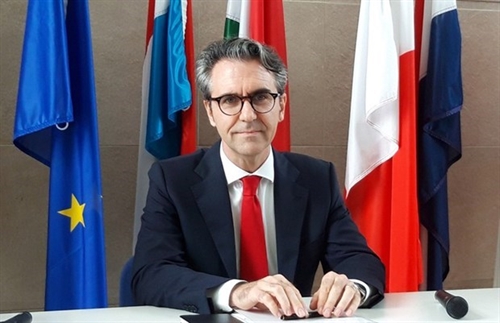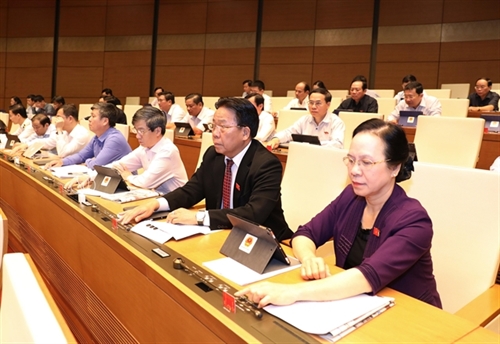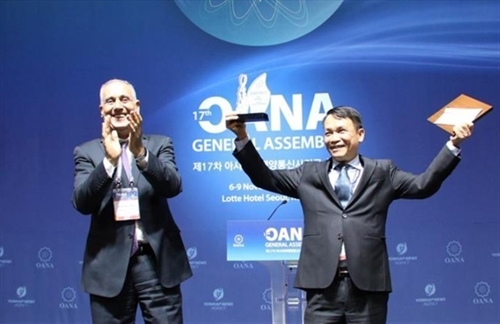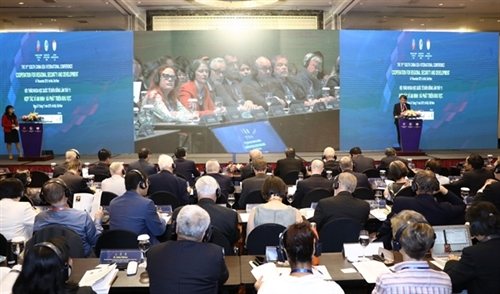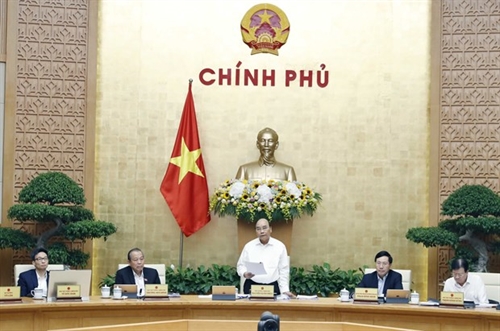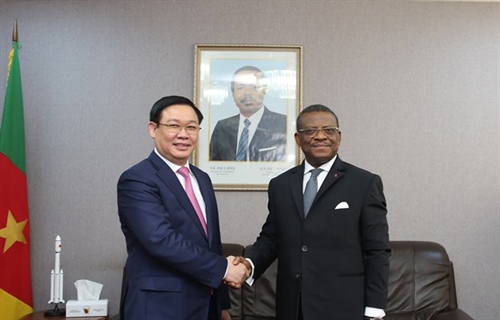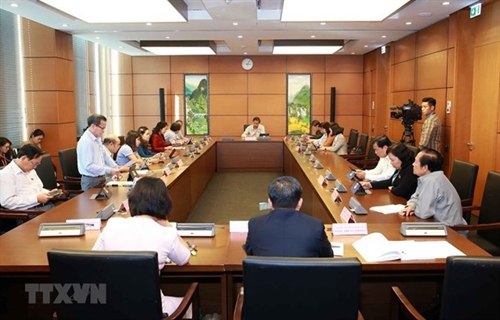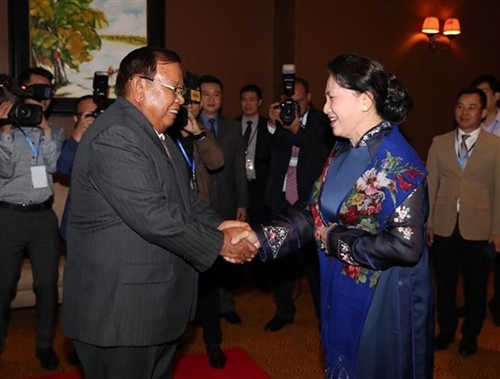Vietnam rejects all contents of the statement made by the Chinese spokesperson on sovereignty over Truong Sa (Spratly) archipelago on November 8.
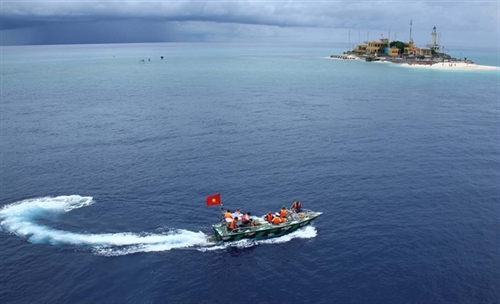 |
| Approaching An Bang (Amboyna Cay) Island in Vietnam's Truong Sa (Spratly) archipelago__Photo: VNA |
Vietnamese Foreign Ministry spokesperson Le Thi Thu Hang made the statement in response to reporters’ question on November 13.
The Chinese foreign ministry spokesperson Geng Shuang last week during a regular press briefing said that Vietnam and other countries in the region engaged in so-called “occupation of China’s Nansha Islands” - China’s name for Truong Sa (Spratly) archipelago over which Vietnam has full sovereignty.
The statement came as Vietnamese Deputy Minister of Foreign Affairs Le Hoai Trung mentioned last week during an international conference that litigation is one of the options in Vietnam’s arsenal to deal with disputes in the South China Sea (known in Vietnam as the East Sea).
In response, Vietnamese foreign ministry spokesperson said that “Vietnam has repeatedly stated it has sufficient historical and legal evidence to prove its sovereignty over Hoang Sa (Paracel) and Truong Sa archipelagoes in line with international law. Historical reality has proven this.”
The spokesperson reiterated Vietnam’s consistent stance that all international disputes, including those relating to sovereignty over Hoang Sa and Truong Sa, must be settled by peaceful measures in accordance with international law, including United Nations Charter and the United Nations Convention on the Law of the Sea 1982.
"Vietnam wishes that China will join efforts in developing the bilateral relationship and maintaining peace, security and stability in the region," Hang said.
The Chinese spokesperson has also asked that Vietnam should refrain from actions that could “complicate matters or undermine peace and stability” in the East Sea, just a few weeks after a simmering stand-off between the two countries when China deployed the survey ship Haiyang Dizhi 08 and a group of escort vessels right into Vietnamese Exclusive Economic Zone and continental shelf, provided for by UNCLOS 1982.
China has also been criticized for engaging in aggressive building of manmade features in the East Sea and militarizing them.
In 2016 July, the Hague-based Permanent Court of Arbitration - established pursuant to the UNCLOS 1982 – has ruled legally invalid China’s sweeping nine-dash claims over the East Sea in the landmark Philippines vs China case.
However, China refused to take part in the tribunal process and categorically rejected the verdict.
Important framework
Director of the Department of Law and International Treaty under Vietnam’s Ministry of Foreign Affairs Le Thi Tuyet Mai, Canadian Ambassador to Vietnam Deborah Paul, and EU Ambassador to Vietnam Giorgio Aliberti have affirmed the crucial role of the UNCLOS in managing activities of nations at sea over the past 25 years and said the convention is an important framework for countries to address disputes and enhance maritime cooperation, during the second ASEAN Regional Forum (ARF) workshop on implementing UNCLOS held on Wednesday in Hanoi.
Based on the convention, a number of initiatives have been proposed to promote cooperation between ASEAN member nations, and between the bloc and its dialogue partners to cope with marine security challenges.
During the two-day workshop, participants focus discussions on measures to increase the efficiency of implementing the UNCLOS and related international legal documents in addressing maritime challenges such as sovereignty disputes, delimitation of maritime boundary, law enforcement at sea, maritime pollution, and climate change as well as terrorism and piracy.
They will also exchange views on new developments in the interpretation of the UNCLOS, share experience and new realities in law enforcement at sea and put forth recommendations to further reinforce cooperation between nations and strengthen the role of mechanisms and frameworks in sea and ocean governance.- (VNS/VLLF)
